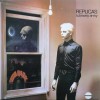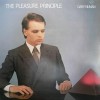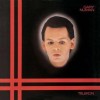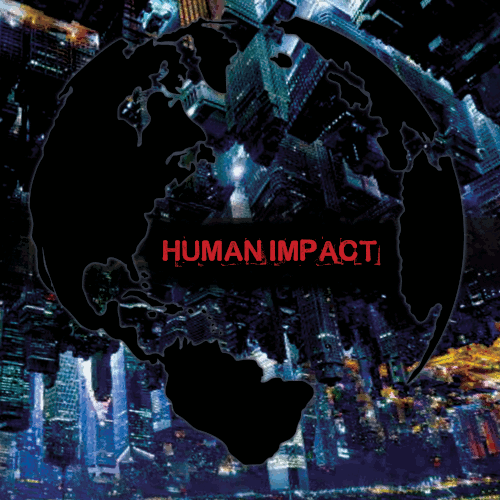Gary Numan’s Top Of The Pops performance of “Are Friends Electric” was the Bowie “Starman” flashpoint for my generation (those creeping around the 50s age bracket). In school the next day we had many discussions about it, the weird music, the weird look, etc; it was like Kraftwerk but darker and, to be honest, just seemed alien to us.
That performance changed lots of people’s lives and here I am, thirty-six years later, reviewing some beautiful audiophile 180 gram vinyl re-pressings of Numan’s three most important albums of his early career. So please bear with me if some nostalgia creeps into my review as I go along, because in a strange way it’s difficult to review these albums that have been part of my life for so long without straying back to my 14-year-old self. I’m going to use these albums in context with other releases, but mainly up against the other London artist who got lumped in with the new romantic fervour — without, like Numan, ever being a part of it — and that’s Japan. Tubeway Army’s Replicas album came fairly hot on the heels of their self-titled post-punk début. It was created around the same time that Japan were putting together their sound changing Quiet Life album in another London suburb close to Numan. The two albums have in a strangely close affinity, but whereas Japan were shaking off their glam punk excesses, Numan was refining his art into a more streamlined sound. Taking away some of the jagged edges of the first album, he began to smooth the sound by using a barrage of Moog sounds to create his new unearthly tunes.
Tubeway Army’s Replicas album came fairly hot on the heels of their self-titled post-punk début. It was created around the same time that Japan were putting together their sound changing Quiet Life album in another London suburb close to Numan. The two albums have in a strangely close affinity, but whereas Japan were shaking off their glam punk excesses, Numan was refining his art into a more streamlined sound. Taking away some of the jagged edges of the first album, he began to smooth the sound by using a barrage of Moog sounds to create his new unearthly tunes.
Numan doesn’t let go of his past completely, as some songs like “You Are In My Vision” hark back to the previous album. But the title track has what would become Numan’s trademark grandiose synth barrage that makes you almost want to swoon all these years later and was the precursor to his follow up.

From “Airplane”‘s string synth opening we are getting a more sophisticated Numan, one that is now using the studio to his advantage and crystallizing his art to make it whole. The album plays like a neon-soaked soundtrack to 1980 (which for many it was). Tracks like “Metal” have an underworld sound that hum and pulsate with the rhythm of a strange city. “Complex”’s beautiful synth lines probably do owe something to John Foxx’s Ultravox sound, but Numan doesn’t make this a straightforward influence, but instead imbues it with his own distinct style.
The album still sounds remarkably fresh, and no matter how many times you hear “Cars” you can’t get over how wonderfully different it was for its time, no wonder it went top five in the USA and influenced so many dance artists. It crashes and bangs with machine-like beats that punch away under that great melody. “Observer” has its static rhythm punctuated by lush keyboards, while “Engineers”’ rolling rhythm wouldn’t have been out of place on a soundtrack for Fritz Lang’s Metropolis. The album is one man’s visionary masterwork and still holds up well today. Within a few months after The Pleasure Principle‘s release, the charts were beginning to get flooded by androgynous bands in make-up using synthesizers as their main instrument of choice in search of the perfect pop melody. While Numan organically pursued his muse in the studio to create Telekon, Japan took several leaps forward in their sound to produce their masterwork Tin Drum, an album that would catapult them to stardom and then into breaking up. In a strange way, Telekon can be seen as a parallel to Tin Drum in the way that both artists had hit an apotheosis of sorts and then wanted to distance themselves from the stardom they had earned.
Within a few months after The Pleasure Principle‘s release, the charts were beginning to get flooded by androgynous bands in make-up using synthesizers as their main instrument of choice in search of the perfect pop melody. While Numan organically pursued his muse in the studio to create Telekon, Japan took several leaps forward in their sound to produce their masterwork Tin Drum, an album that would catapult them to stardom and then into breaking up. In a strange way, Telekon can be seen as a parallel to Tin Drum in the way that both artists had hit an apotheosis of sorts and then wanted to distance themselves from the stardom they had earned.
“Sleep By Windows” is an odd number that drifts into moments of surreal unreality as Numan’s arsenal of synths wash away the sandman’s bad dreams. Big sounds swell from “I’m An Agent”, while “Remember I Was Vapour” has a semi-jaunty piano motif over a slippery, almost Mick Karn bassline. With tracks like “Please Push No More”, Numan was trying to expand his vocabulary of music styles, something he would push to do on his follow-up Dance. Telekon has all of Numan’s signatures assimilated into it, but it feels like an artist who’s already trying feel his way around his own musical cohesion so that he doesn’t become the Status Quo of synth pop. The album is bold, but you get a sense of Numan wanting to leap to his next stage of development — but he’s easing his way there instead. Telekon is a remarkable work because of this, in much the same way that Aladdin Sane is now regarded as a classic.
As mentioned above, the sound on these reissues are beautiful and warm sounding. The artwork, including inner sleeves, are all intact and my copy of Replicas was on coloured vinyl. The extra tracks on Telekon help flesh out and tie up any loose ends from this period. The major thing in listening back to these records is that it was probably the last time that British pop (for want of a better word) was this intelligent and experimental, pushing the boundaries to the limits of its sound. Ignoring the look, of which many a teenager tried to copy, Numan’s music was sophisticated and strong on melody. And even though he seemed like an outsider, he found millions of other “outsiders” that his music spoke to (and still speaks to), myself included.-Gary Parsons-




2 thoughts on “Tubeway Army – Replicas / Gary Numan – The Pleasure Principle / Telekon”
Here’s a few choice quotes from Numan :
“I was never into music I was fascinated by the lifestyle that went with it….the money and fame”
“Music is a buy product”
“Every song I’ve ever written is a re-working of someone else’s. I disguise them strongly. I’m good at that”
“It shouldn’t of happened until ‘Cars’. ‘Are “Friends” Electric?’ was a mistake. It
went to number one because of the picture disc sales”
“Bowie?, oh I’m bigger than Bowie…I’m the closest thing he’s had in years in terms of competition. That’s why he feels threatened by me”
I’m surprised numan did not have more number one albumns such I assassin berzerker and his last 4 albumns are top class john foxx should of gone to number one ad well quality music still sounds great